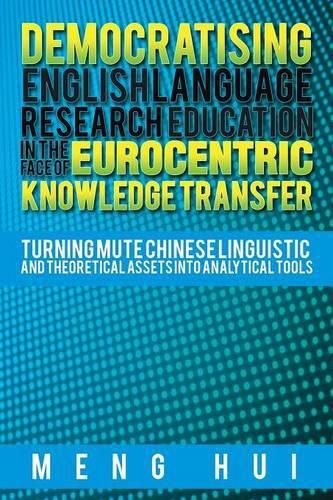Readings Newsletter
Become a Readings Member to make your shopping experience even easier.
Sign in or sign up for free!
You’re not far away from qualifying for FREE standard shipping within Australia
You’ve qualified for FREE standard shipping within Australia
The cart is loading…






This title is printed to order. This book may have been self-published. If so, we cannot guarantee the quality of the content. In the main most books will have gone through the editing process however some may not. We therefore suggest that you be aware of this before ordering this book. If in doubt check either the author or publisher’s details as we are unable to accept any returns unless they are faulty. Please contact us if you have any questions.
The number of Chinese research students studying in Australian universities is growing (Bradley, 2008). They are supposed to adapt to the new academic culture and their own intellectual assets are marginalised or even ignored (Singh, 2009, 2010; Singh & Han, 2009, 2010). Being situated in an academic environment which is Eurocentric, hierarchical, and largely dominated by the Western or Euro-American theory, in most cases, these students have to keep their own intellectual assets silent. This is another representation of Eurocentric knowledge diffusion (Alatas, 2006; Connell, 2007). However, despite all these unfavourable situations, some Chinese international research students have used some Chinese intellectual assets while doing research in Australia (Han, 2006; Han & Zhao, 2008; Singh & Han, 2009, 2010). Informed by Ranciere’s concepts of democracy (1991, 2006a, 2007b, 2009c) and mute speech (1999, 2007b, 2010a), this study makes original contribution to knowledge through (i) advancing a claim for, and an approach to democratising Australian research education and (ii) developing the “mute speech” pedagogy which might help engaging non-Western theoretical knowledge in this process.
$9.00 standard shipping within Australia
FREE standard shipping within Australia for orders over $100.00
Express & International shipping calculated at checkout
This title is printed to order. This book may have been self-published. If so, we cannot guarantee the quality of the content. In the main most books will have gone through the editing process however some may not. We therefore suggest that you be aware of this before ordering this book. If in doubt check either the author or publisher’s details as we are unable to accept any returns unless they are faulty. Please contact us if you have any questions.
The number of Chinese research students studying in Australian universities is growing (Bradley, 2008). They are supposed to adapt to the new academic culture and their own intellectual assets are marginalised or even ignored (Singh, 2009, 2010; Singh & Han, 2009, 2010). Being situated in an academic environment which is Eurocentric, hierarchical, and largely dominated by the Western or Euro-American theory, in most cases, these students have to keep their own intellectual assets silent. This is another representation of Eurocentric knowledge diffusion (Alatas, 2006; Connell, 2007). However, despite all these unfavourable situations, some Chinese international research students have used some Chinese intellectual assets while doing research in Australia (Han, 2006; Han & Zhao, 2008; Singh & Han, 2009, 2010). Informed by Ranciere’s concepts of democracy (1991, 2006a, 2007b, 2009c) and mute speech (1999, 2007b, 2010a), this study makes original contribution to knowledge through (i) advancing a claim for, and an approach to democratising Australian research education and (ii) developing the “mute speech” pedagogy which might help engaging non-Western theoretical knowledge in this process.